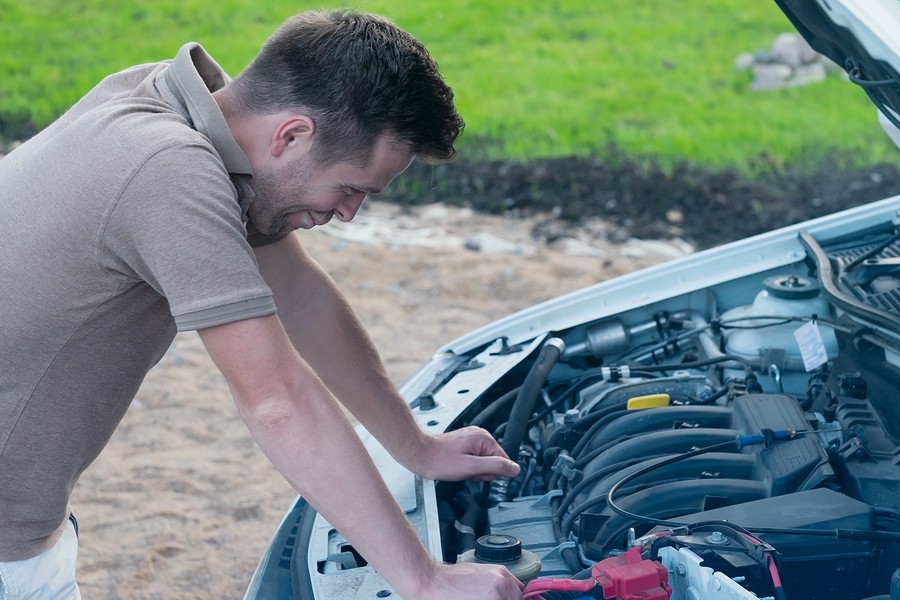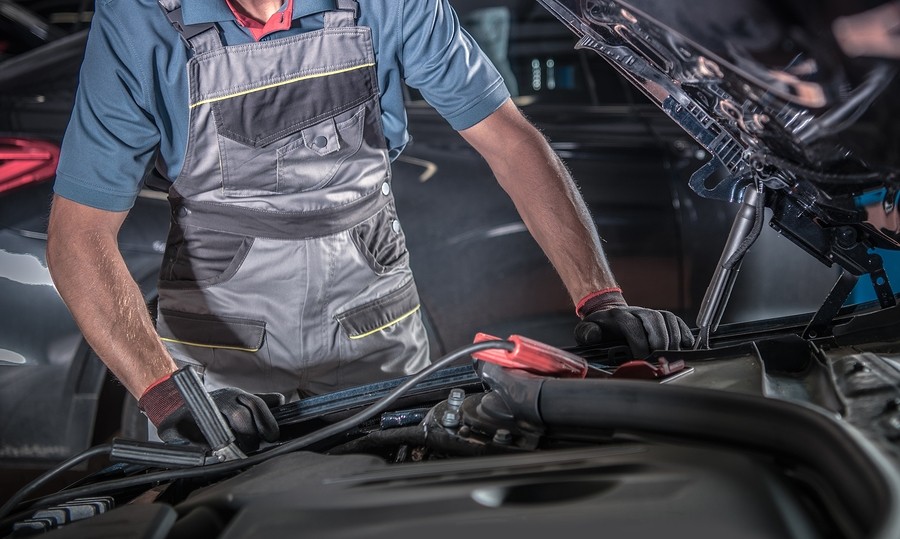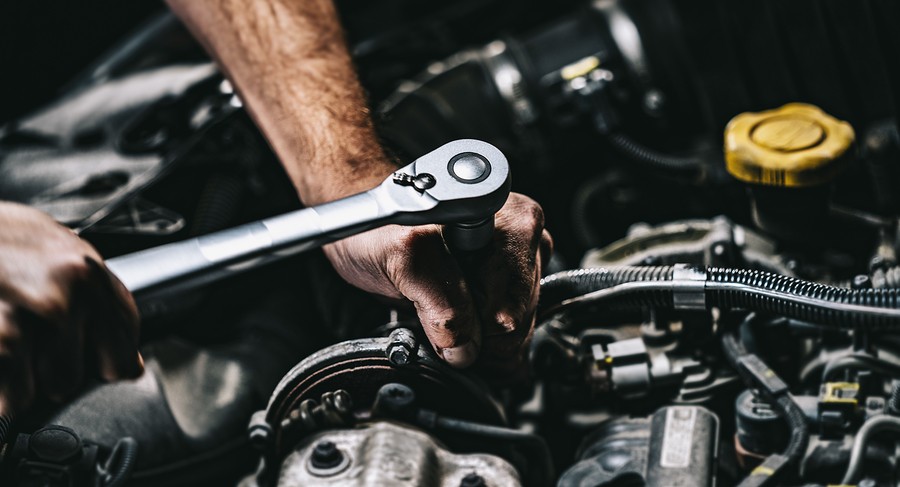Here are the seven things to do when your mechanic can't fix your car:
- Consider getting a second opinion
- Understand any recent recalls
- Diagnosed the vehicle yourself
- Understand the impact of the condition of your vehicle
- Research the manufacturer
- Check out any modifications
- Consider a special mechanic
Your vehicle is not designed to last forever, and there will be a time when it might break down. Some of these breakdowns might be resolvable where. Your mechanic can fix the vehicle within a couple of weeks. However, there are situations where the vehicle might get beyond repair.
When your mechanic can't fix your car, it doesn't mean that this is the reality of your vehicle and you should give up on this car. In other words, there are some things to do when your mechanic can't fix your car.
Understanding what needs to be done if your mechanic gives up on your vehicle is very important to help you get the most out of this car and prevent needing to buy a new vehicle when it's inconvenient.
This article summarizes the seven things to do when your mechanic can't fix your car. We highly encourage you to go through all these things before making a final decision about selling the vehicle as is or losing its value.
7 things to do when your mechanic can’t fix your car
Experts understand there is an end to the vehicle’s lifetime; however, not every mechanic will tell you whether your vehicle has reached that point. In other words, your mechanic might easily say that your vehicle is beyond repair, but it could be that that mechanic is not experienced enough to fix the vehicle.
Therefore, before giving up on your vehicle and believing that it's beyond repair, you need to follow these seven things:
- Consider getting a second opinion
The first and most critical thing is getting a second opinion. As we indicated earlier, mechanics have a certain level of mechanical skill sets, and with experience, they'll be able to fix major challenging problems easily. However, if the mechanic tool checks that your vehicle is just starting, he might need the right experience or even the special tools to inspect the vehicle and confirm the problems.
Therefore, we highly encourage you to get a second opinion. When you're getting a second opinion, it's recommended that you find a specialist who knows the brand and might have better tools to inspect the vehicle than the old one. Once you get to the second mechanic, you should bring any documentation to prove or provide information about what was done to the vehicle and what the other mechanic checked to save time and effort.
You also need to describe the situation carefully to your mechanic to help him narrow down the potential culprits. For example, if your vehicle is not starting and has been in this situation for weeks now, the problem could be related to an issue with the battery itself or a major issue in the engine.
The more details you provide the other mechanic, the easier it is for him to determine and narrow down the list of potential culprits and hopefully fix your vehicle, even if your old mechanic said it's beyond repair.
- Understand any recent recalls
There are many situations where car owners are surprised that their newer vehicles are beyond repair and the mechanic cannot fix them. This is a very common situation that could be linked to issues with how the vehicle was designed.
In other words, there could be some malfunction in the way the parts were put together that has to do with the factory or the manufacturer itself. Therefore, we encourage you to check for any available recalls or technical service bulletins.
You can search for these recalls by vehicle brand, name, or year. Some of these problems might impact several models over and across several years. Spending the time researching this might save you a lot of time and effort hassling behind the problem and trying to fix it out of your pockets.
For example, check the National Highway Traffic Safety Administration website. They should have a summary of all recent recalls and potential technical service bulletins about every vehicle by brand and type.
If you confirm that your vehicle has a related recall to the problem you're dealing with, that's it! You're done. You can visit the local dealership and check your options with them. In most scenarios, these dealerships will be able to fix your problem by installing better components, or they might have additional options for you, so you don't have to worry about their repair costs.
- Diagnosed the vehicle yourself
Another thing you can try is to diagnose the vehicle yourself. Many tools help you connect to your vehicle easily nowadays, considering the advanced technology and how vehicles are manufactured.
For example, if your vehicle has a continuous check engine light illuminating and your mechanic cannot determine what's exactly going on, you can check the engineer by using a scanning tool.
Once you scan the engine, the scanning tool will provide you with a diagnostic trouble code that you can't translate into relevant faulty components. Depending on the complexity of the tool, the tool might provide you with additional information about what exactly is happening in the vehicle and what your repair options are, in addition to the potential repair costs that you should expect.
You don't necessarily have to purchase the most advanced scanning tool because those can be very expensive, and they are more suitable for mechanics who use them continuously. You can purchase the simple ones or borrow a scanning tool from your family member or friend.
- Understand the impact of the condition of your vehicle
The other thing to consider is that your vehicle has a lifespan, and when it approaches the end of the lifespan, it will start having significant problems that could be beyond repairs. For example, if your car is approaching 200,000 miles and your mechanic is not able to fix the continuous problems with the engine, it's not surprising to hear that you're your mechanic can't fix your car.
In that case, the easiest thing to do is to sell the vehicle as is and use its value to buy a better car. Of course, people will only be interested in purchasing vehicles within 200,000 miles. Still, if you look for companies like Cash Cars Buyer, you'll be able to get a free towing service and have someone remove your vehicle fast and for the most money.
If you're interested in more details, please call us at 773-791-4363.
- Research the manufacturer
Sometimes common problems could be related to a specific vehicle type and brand. In other words, you might find a continuous complaint about a certain model from a manufacturer that you need to be aware of.
One way to learn about these things is to check online forums and communities about consumer advocacy organizations willing to provide details about customer complaints and check if there is something common that you're dealing with.
Often, these organizations work hard to force the manufacturer to issue a recall or technical bulletin documents to help take care of the problem if it's something common between all owners and it's not related to your vehicle only.
By learning about this information, you can save yourself a lot of hassle and time trying to convince your mechanic to take another look and fix the vehicle. Sometimes you might even change your mind about purchasing a specific vehicle brand by learning about the common problems these vehicles suffer from.

- Check out any modifications
If your mechanic is telling you that he can't fix your car, you might need to check for any potential aftermarket modifications or replacements. For example, if you've purchased a used vehicle owned by someone else, these owners could have modified the vehicle using aftermarket components.
In that case, dealing with some problems related to incompatibility issues when these components are installed is common. In other words, that owner could have purchased a third-party engine or major component that was fine at the beginning but started developing major problems down the road.
You shouldn't be surprised that your mechanic can't fix your car. Technically, he would need clear clarification to determine what is causing the problem, and the vehicle will complain about internal problems.
Of course, some experienced mechanics can immediately detect the problem, which takes us to the second point about considering a special mechanic.
- Consider a special mechanic
We mentioned earlier that one of the first things to consider about the things to do if your mechanic can't fix your car is the mechanics’ level of experience. Some entry-level mechanics might need to gain all the knowledge needed to determine what exactly is happening in your vehicle, and the easiest thing to do is to say that your car is beyond repair.
However, if you still think your vehicle is in good condition and the problem shouldn't end this way, you can check certain professional mechanics who specialize in your vehicle’s brand.
For example, if you're a Ford owner, you can visit the nearest Ford dealership and check with them if they can inspect the vehicle and confirm what's going on. Sometimes the specialized mechanic in certain brands will tell you if there's a common problem in this brand by just looking at its make, model, and year.
The one thing to keep in mind is that going to specialized mechanics is costly, and the labor costs for the hourly rate of these mechanics are much higher than going to a general mechanic with little experience. However, it's worth spending the time and effort if you think the vehicle is valuable and it still has a chance to get fixed word.

How to avoid getting to a situation where your mechanic can't fix your car?
While it's common to deal with situations where your vehicle has major problems, the last thing you want to deal with is when your mechanic can't fix it. Therefore, you must follow certain recommendations from automotive experts about what needs to be done to avoid getting to this point.
Let's say I also look below at some of these recommendations:
- Follow the maintenance
The first and most critical thing to keep up with is your regular maintenance. Your vehicle owner’s manual should have recommendations about what needs to be done and when it should be done so your vehicle stays healthy for the longest possible.
- Do not ignore minor problems
Many inexperienced drivers need to pay more attention to the challenge of ignoring minor problems. According to experts, the earlier you detect the problem, the easier it is for your mechanic to fix the vehicle without needing to install major components and without needing to say he can't fix your car.
- Describe the problem carefully
Many car problems must be described carefully so your mechanic can easily detect the root culprit. For example, your vehicle might make weird grinding noises, which could happen in certain situations but not others.
That's why you must describe the problem as carefully as possible to your mechanics so we can narrow down the potential list of culprits. For example, you can say that the vehicle is making grinding noises whenever you turn or increase the speed.
The more details you provide the mechanic, the easier it is to detect the problem and fix your car without wasting time and effort trying to find a maze of potential culprits.

Final thoughts
When your mechanic can't fix your car, there are a couple of things you need to do before giving up on your car, and these things include getting a second opinion, understanding the history behind the manufacturer and the vehicle brand, learning about any modifications, or reaching out to a special mechanic.
If you realize your vehicle is beyond repair, you can easily get rid of it by selling it to Cash Cars Buyer at 7737914363.



